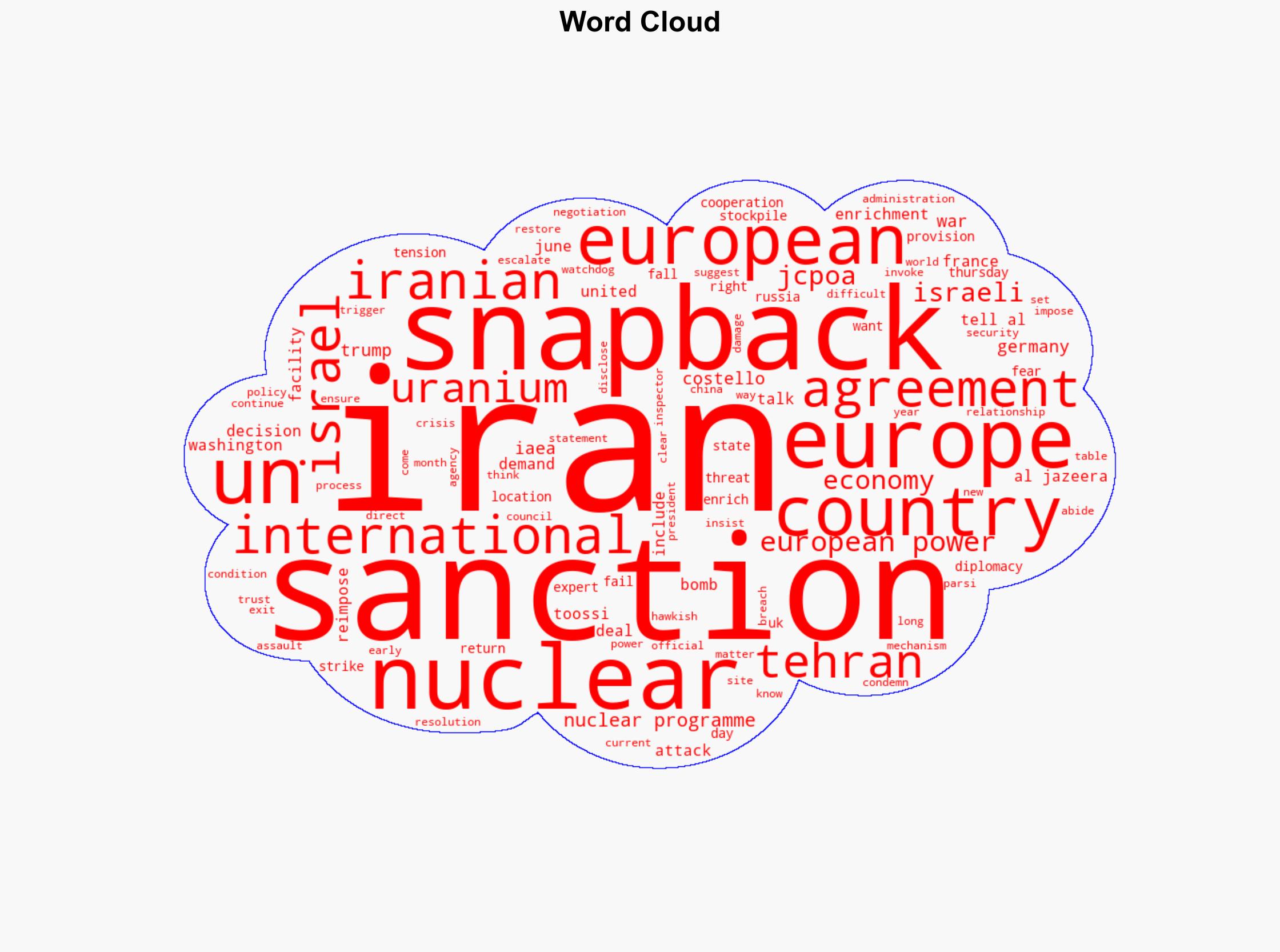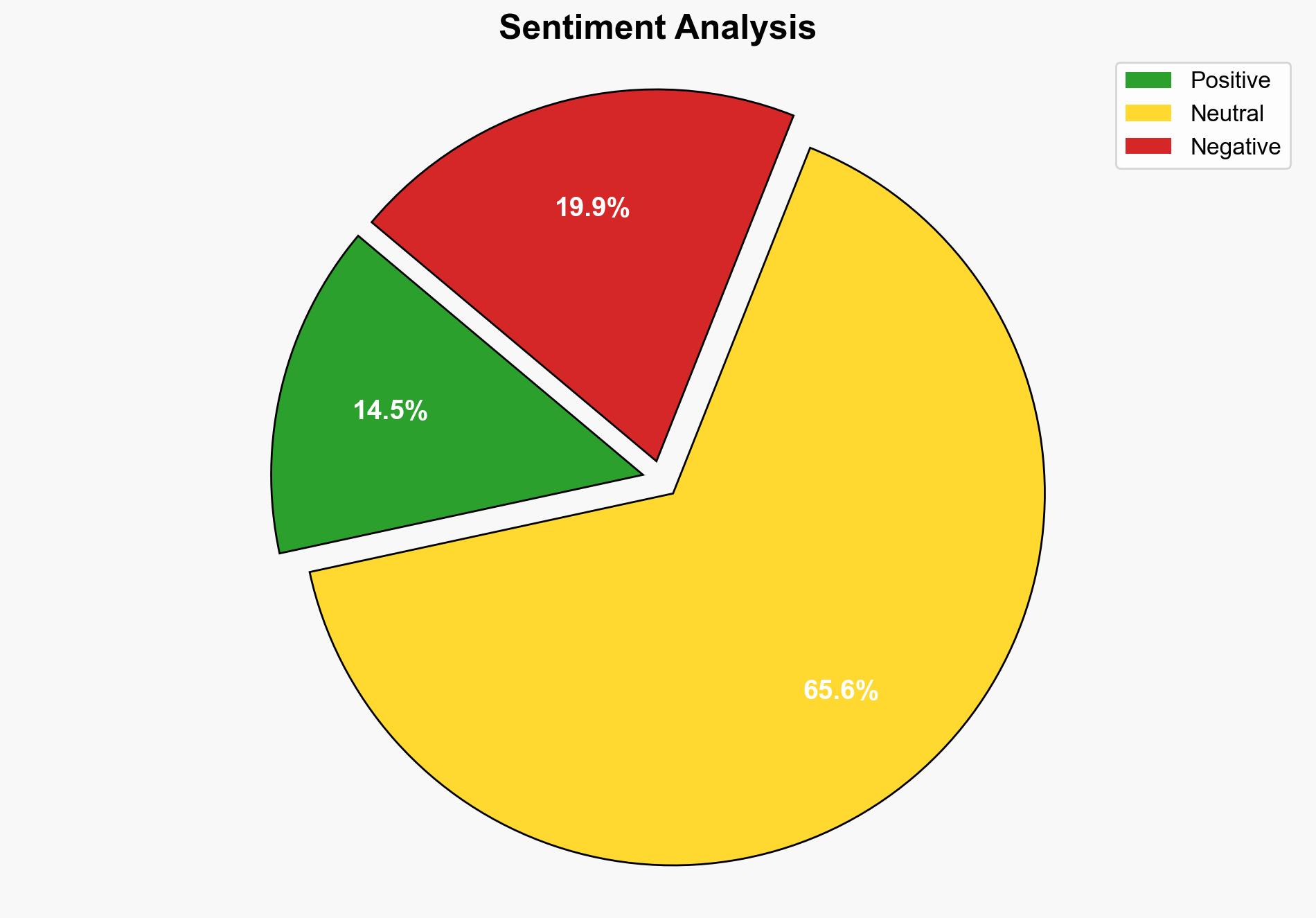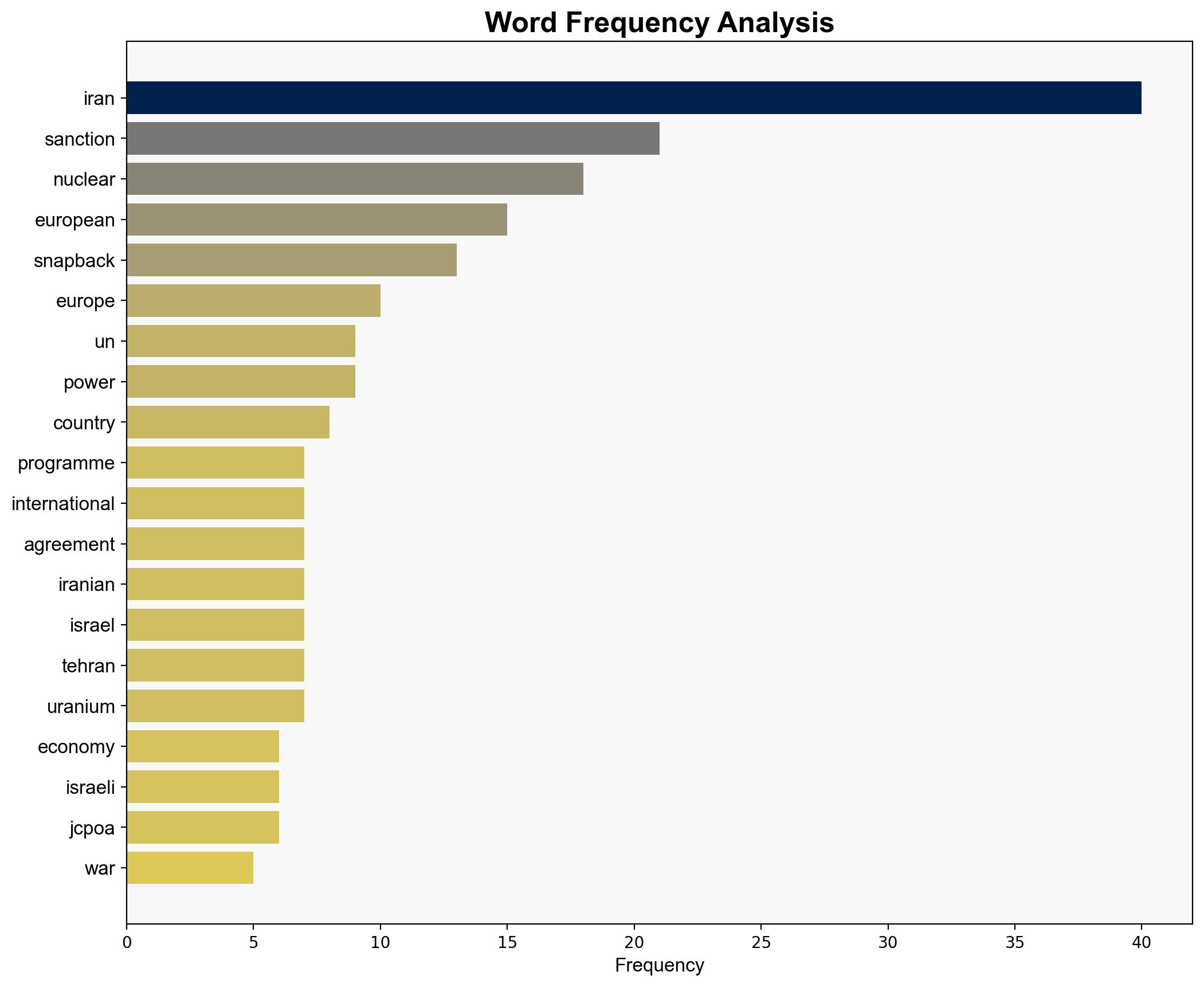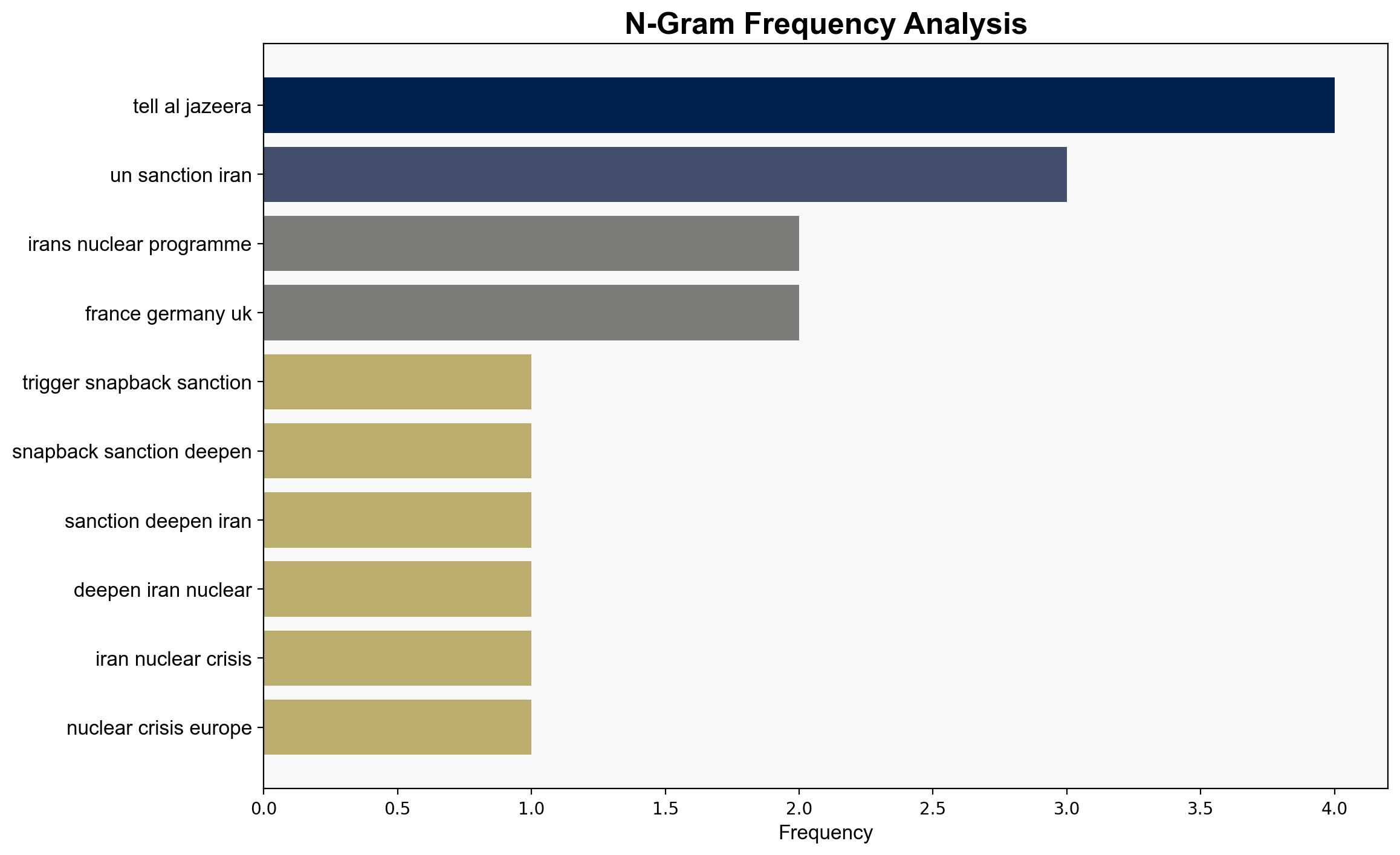How triggering snapback sanctions may deepen Iran nuclear crisis – Al Jazeera English
Published on: 2025-08-29
Intelligence Report: How triggering snapback sanctions may deepen Iran nuclear crisis – Al Jazeera English
1. BLUF (Bottom Line Up Front)
The reimposition of snapback sanctions on Iran by European countries is likely to exacerbate tensions and could lead to increased regional instability. The most supported hypothesis is that these sanctions will push Iran towards further nuclear escalation, potentially provoking military responses from regional actors like Israel. Confidence level: Moderate. Recommended action: Engage in multilateral diplomatic efforts to de-escalate tensions and explore alternative avenues for negotiation.
2. Competing Hypotheses
Hypothesis 1: The snapback sanctions will compel Iran to escalate its nuclear program, increasing the risk of military conflict in the region. This hypothesis is supported by Iran’s historical responses to sanctions and the current geopolitical climate, which includes heightened tensions with Israel.
Hypothesis 2: The snapback sanctions will pressure Iran back to the negotiating table, leading to a potential diplomatic resolution. This hypothesis assumes that economic pressure will outweigh Iran’s strategic interests in nuclear advancement.
3. Key Assumptions and Red Flags
Assumptions:
– Hypothesis 1 assumes Iran prioritizes nuclear capability over economic stability.
– Hypothesis 2 assumes that economic sanctions are sufficient to change Iran’s strategic calculus.
Red Flags:
– Inconsistent messaging from Iran regarding its nuclear intentions.
– Potential underestimation of Iran’s resilience to economic sanctions.
– Lack of clear communication channels between involved parties, increasing the risk of misinterpretation.
4. Implications and Strategic Risks
The reimposition of sanctions may lead to a series of cascading threats, including:
– Increased likelihood of military confrontation between Iran and Israel.
– Potential for broader regional conflict involving proxy actors.
– Economic destabilization in Iran, potentially leading to internal unrest.
– Strain on international diplomatic relations, particularly between Europe and Iran.
Geopolitical dimensions include the risk of alienating Russia and China, who may oppose the sanctions and support Iran.
5. Recommendations and Outlook
- Initiate back-channel communications to reduce the risk of miscalculation and unintended escalation.
- Explore economic incentives for Iran to comply with nuclear agreements as an alternative to sanctions.
- Scenario-based projections:
- Best Case: Iran returns to negotiations, leading to a revised nuclear agreement.
- Worst Case: Military conflict erupts, destabilizing the region.
- Most Likely: Continued tension with sporadic diplomatic engagements.
6. Key Individuals and Entities
– Ryan Costello
– Marco Rubio
– Sina Toossi
7. Thematic Tags
national security threats, regional instability, nuclear proliferation, diplomatic negotiations





